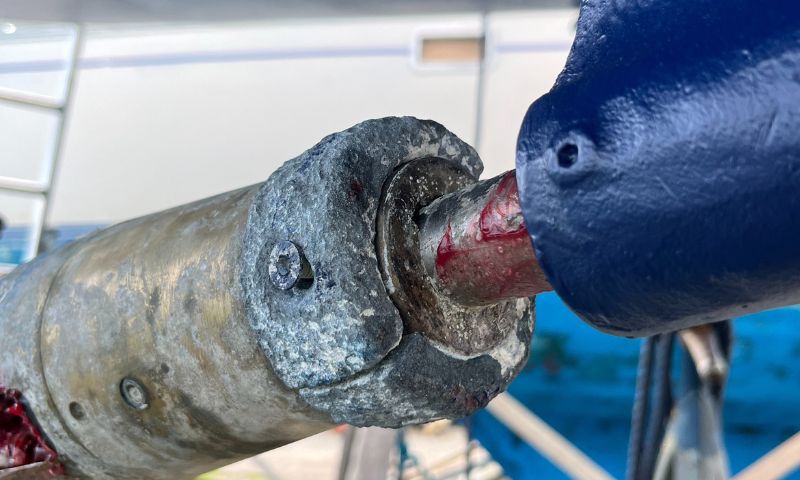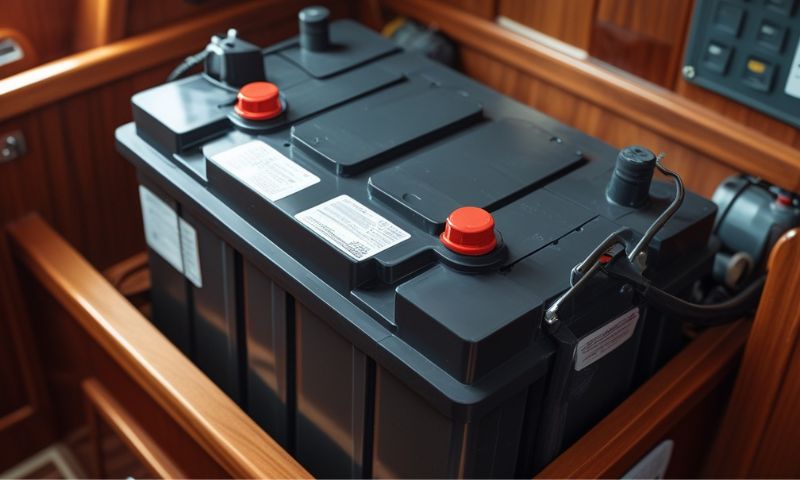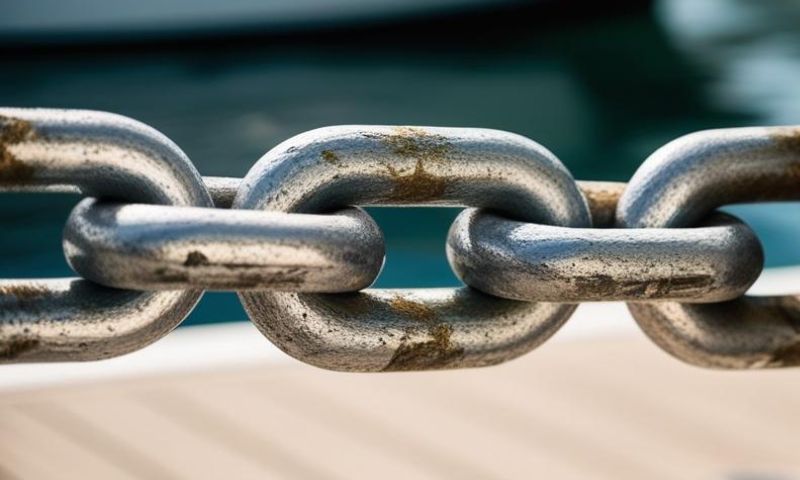Zinc plays a crucial role in marine environments, particularly in protecting boats from corrosion. Without proper protection, metal components in constant contact with water are at significant risk of deterioration due to exposure to salt, moisture, and other corrosive elements. The longevity and structural integrity of a boat heavily depend on implementing effective anti-corrosion measures, with zinc anodes being one of the most widely used solutions. This guide explores the importance of zinc anodes, their role in preventing galvanic corrosion, proper installation techniques, and best maintenance practices to ensure your boat remains protected for years to come.
Introduction to Zinc and Its Role in Boating
Zinc is extensively utilized in the marine industry due to its ability to act as a sacrificial anode, a crucial function that prevents corrosion in submerged metal parts. When placed correctly on a vessel, zinc anodes attract electrochemical reactions, absorbing the corrosive effects that would otherwise damage essential boat components such as propellers, shafts, and hull fittings. Without these protective anodes, marine equipment and structural elements could deteriorate at an accelerated pace, leading to costly repairs and compromised safety. By understanding how zinc functions within a marine environment, boat owners can take proactive measures to ensure the longevity of their vessels and avoid premature degradation of critical parts.
Galvanic Corrosion and Cathodic Protection
Understanding the science behind corrosion is key to preserving a boat’s structural integrity. Galvanic corrosion occurs when two different types of metal are submerged in water, creating an electric current that accelerates metal degradation. This reaction happens because different metals have varying electrochemical properties, leading to a transfer of electrons that weakens the less noble metal. In the absence of protective measures, critical components can suffer from rapid deterioration, threatening both the functionality and safety of the vessel.
How Zinc Anodes Prevent Galvanic Corrosion
Zinc anodes serve as the primary defense against galvanic corrosion by acting as a sacrificial element within the marine electrical circuit. Since zinc is a more reactive metal than the steel, bronze, or aluminum components commonly found on boats, it corrodes first, absorbing the electrochemical damage that would otherwise affect critical structures. This process, known as cathodic protection, ensures that zinc anodes bear the brunt of corrosion, preserving the integrity of boat parts and significantly extending their lifespan. Regular inspection and timely replacement of zinc anodes are essential to maintaining their effectiveness, preventing unexpected failures and expensive repairs.
To ensure proper protection and avoid electrical issues, it’s also important to maintain your marine batteries regularly.
Types of Sacrificial Anodes Used in Marine Environments
Selecting the right type of sacrificial anode depends on multiple factors, including the type of water in which the boat operates and the specific materials used in its construction. While zinc remains a popular choice due to its effectiveness in saltwater, alternative anodes provide solutions for different environmental conditions.
Zinc Anodes: Features and Applications
Zinc anodes are best suited for boats operating in saltwater, where they provide consistent and reliable corrosion protection. Their high durability ensures long-term effectiveness in preventing electrochemical degradation, making them a preferred choice for critical areas such as hull fittings, propellers, and rudders. Due to their composition, zinc anodes offer a balanced level of protection without excessive material wastage, ensuring that boats remain safeguarded without the need for frequent replacements.
Aluminum Anodes: When and Why to Use Them
Aluminum anodes serve as an excellent alternative to zinc, particularly for vessels that operate in both saltwater and brackish environments. Compared to zinc, aluminum anodes are lighter, longer-lasting, and more efficient in certain conditions. Additionally, aluminum produces fewer heavy metal contaminants, making it a more environmentally friendly choice. In areas where environmental regulations restrict the excessive use of zinc anodes, aluminum provides an effective and sustainable option without compromising protection.
Magnesium Anodes: Application in Freshwater
For boats primarily used in freshwater environments, magnesium anodes are the preferred choice due to their highly reactive nature. Unlike zinc and aluminum, which function best in saltwater and brackish conditions, magnesium provides aggressive protection in freshwater by reacting more readily with potential corrosive elements. However, because magnesium anodes corrode much faster in saltwater, they are not suitable for marine environments with high salinity levels, as their rapid deterioration would render them ineffective in a short period.
----- 👀 A quick peek below deck…
While you’re reading about boat maintenance and common issues on board, why not take a moment to sneak a peek inside the Easysea community? It’s a free space built for sailors like you—where we talk about real problems, swap smart solutions, and share stories from life at sea. Inside, you’ll find:
⚓ Problems & Solutions – get answers from people who’ve been there.
🧰 Logbook and boat maintenance – see what others are doing to keep their boats in shape.
🌊 Easy Chat – hang out, ask questions, and stay in the loop. 👉 Curious? Hop on board and join us.
It’s free.
Installation and Maintenance of Zinc Anodes
Ensuring the proper installation of zinc anodes is essential for their optimal performance in protecting metal components from corrosion. Misplacement or poor contact with the protected surfaces can lead to reduced effectiveness, leaving critical areas exposed to deterioration.
Guidelines for Proper Anode Installation
To maximize the protective benefits of zinc anodes, they must be installed in direct contact with the metal surfaces they are intended to protect. Any barrier, such as paint or insulation, can hinder the effectiveness of the anode. Additionally, anodes should be distributed evenly across the vessel to ensure uniform corrosion prevention. Boat owners should routinely inspect their anodes for wear and replace them once they have corroded by approximately 50% to maintain continuous protection. Avoiding common installation mistakes will help preserve the integrity of the vessel’s metal components and extend their functional lifespan.
Environmental Considerations of Zinc Usage
While zinc anodes play a crucial role in protecting boats from corrosion, their use also raises environmental concerns. As they deteriorate, zinc anodes release small particles into the surrounding water, contributing to heavy metal accumulation in marine ecosystems. Over time, this can impact aquatic life, particularly in areas with high boating activity. Some regions have introduced regulations to limit the excessive use of zinc anodes, encouraging the adoption of alternative materials that provide similar protection with reduced environmental impact.
Eco-Friendly Alternatives and Innovations
The search for more sustainable solutions has led to the development of eco-friendly alternatives to traditional zinc anodes. Aluminum anodes, for example, are increasingly favored due to their reduced heavy metal content and extended lifespan. Additionally, new hybrid anodes incorporate less harmful materials while maintaining corrosion protection. Research is also underway to create biodegradable anodes, which would minimize long-term environmental damage while still offering the necessary protective properties for marine vessels.
Final Considerations on Zinc Anodes
Zinc anodes remain a fundamental component of marine corrosion protection, helping to extend the lifespan of boat components and ensure safe, reliable operation. By selecting the appropriate type of anode, following best installation practices, and conducting regular maintenance, boat owners can maximize the effectiveness of these protective elements. Additionally, considering environmentally responsible alternatives ensures a balance between boat protection and marine conservation. Adopting best practices in anode selection and maintenance allows boaters to enjoy a safer, more sustainable experience on the water while preserving the structural integrity of their vessels for years to come.





Leave a comment
This site is protected by hCaptcha and the hCaptcha Privacy Policy and Terms of Service apply.